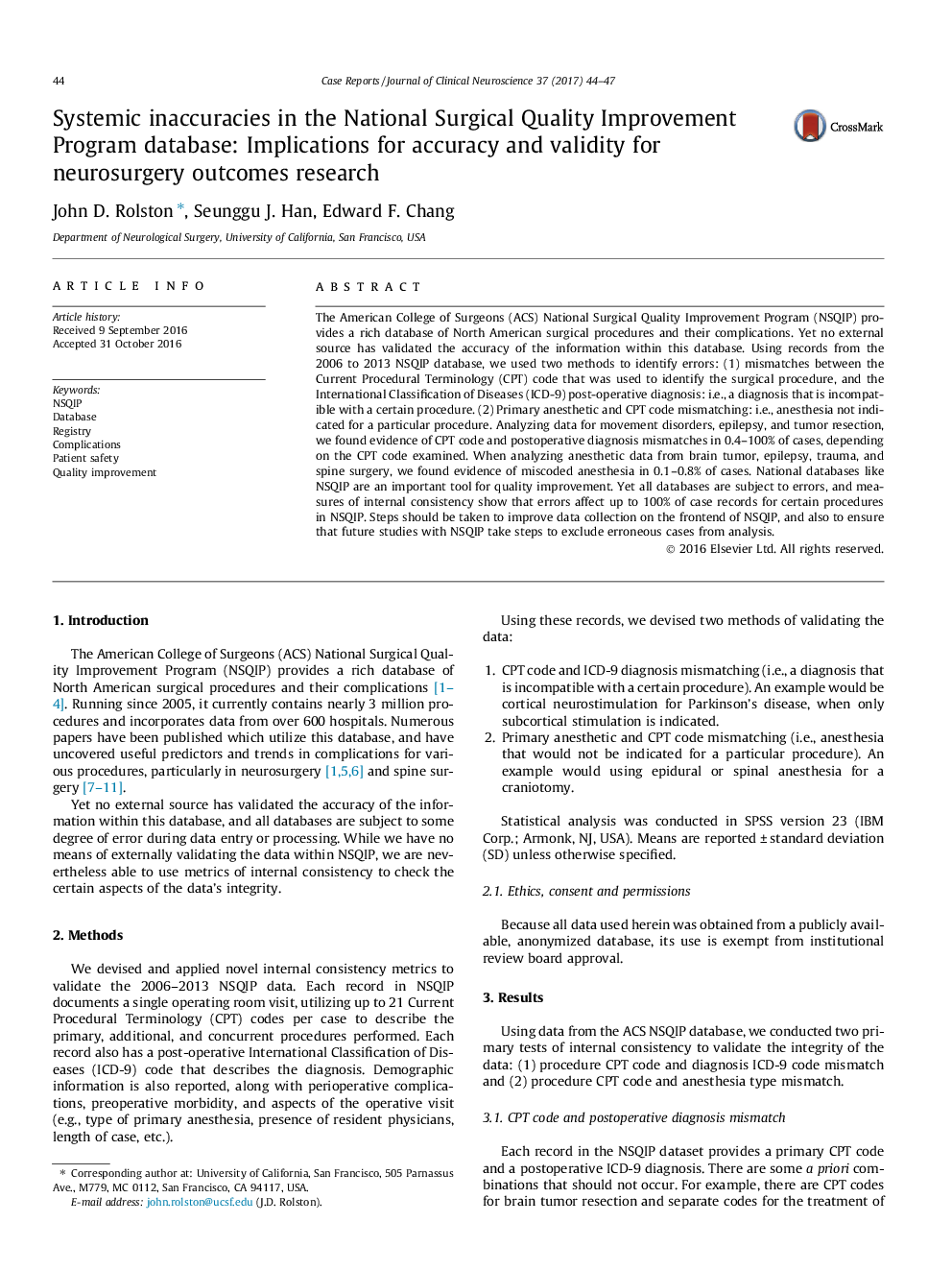| کد مقاله | کد نشریه | سال انتشار | مقاله انگلیسی | نسخه تمام متن |
|---|---|---|---|---|
| 5629982 | 1580279 | 2017 | 4 صفحه PDF | دانلود رایگان |
- No external source has validated the accuracy of NSQIP information.
- Evidence of CPT and diagnosis mismatch exists in up to 100% of neurosurgical cases.
- There is evidence of miscoded anesthesia in 0.1-0.8% of neurosurgical cases.
The American College of Surgeons (ACS) National Surgical Quality Improvement Program (NSQIP) provides a rich database of North American surgical procedures and their complications. Yet no external source has validated the accuracy of the information within this database. Using records from the 2006 to 2013 NSQIP database, we used two methods to identify errors: (1) mismatches between the Current Procedural Terminology (CPT) code that was used to identify the surgical procedure, and the International Classification of Diseases (ICD-9) post-operative diagnosis: i.e., a diagnosis that is incompatible with a certain procedure. (2) Primary anesthetic and CPT code mismatching: i.e., anesthesia not indicated for a particular procedure. Analyzing data for movement disorders, epilepsy, and tumor resection, we found evidence of CPT code and postoperative diagnosis mismatches in 0.4-100% of cases, depending on the CPT code examined. When analyzing anesthetic data from brain tumor, epilepsy, trauma, and spine surgery, we found evidence of miscoded anesthesia in 0.1-0.8% of cases. National databases like NSQIP are an important tool for quality improvement. Yet all databases are subject to errors, and measures of internal consistency show that errors affect up to 100% of case records for certain procedures in NSQIP. Steps should be taken to improve data collection on the frontend of NSQIP, and also to ensure that future studies with NSQIP take steps to exclude erroneous cases from analysis.
Journal: Journal of Clinical Neuroscience - Volume 37, March 2017, Pages 44-47
